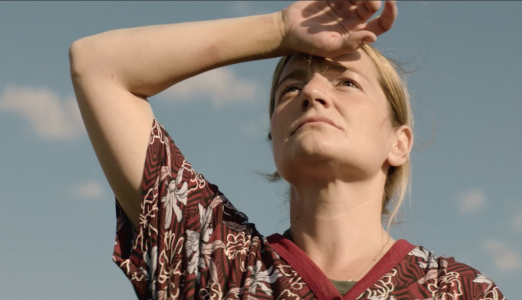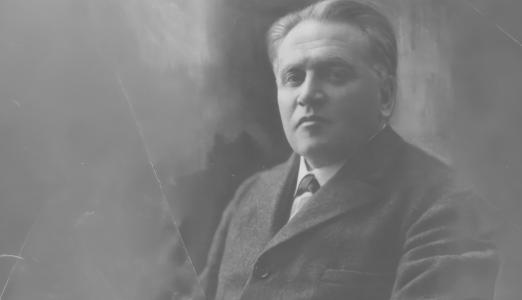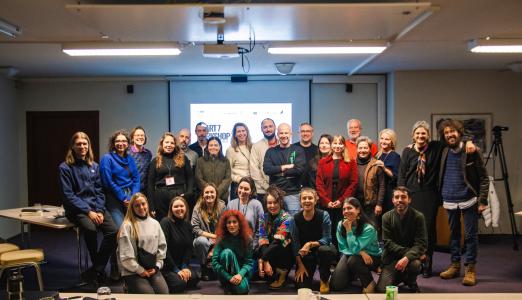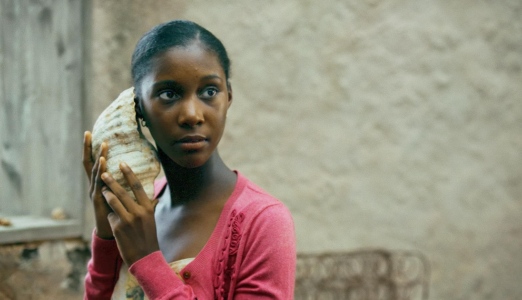PerspecTIFF - A CHARACTERISTIC OF ROMANIAN CINEMA
OR, WHERE DOES RUDENESS COME FROM?

Jay Weissberg
Two nights ago, the Jameson party: I’m standing at the bar like some poor schnook, watching all the people deliberately ignoring the fact that I’ve been waiting to catch the bartender’s eye. With attention-getting gestures and forward leans against the counter, they get served first, no doubt figuring that if I’m bad at playing the game, why should they do the polite thing and notice who’s ahead of them? It will happen at the HBO Party too, and basically every party – you get used to these sorts of things. But it started me musing on one of the major themes in Romanian cinema: how people treat other human beings.
Don’t think I’m suggesting it’s primarily a Romanian thing to push to the front at bars – it was an international crowd at the party, and whether you’re at some chic watering hole in Cairo or a dive in Los Angeles, the behavior is all the same. I’m just using the experience to make a wild extrapolation (or an attention-getting introduction – you decide which), but it’s an unavoidable fact, and one of the more underreported characteristics of Romanian cinema, that this country’s films frequently deal with how people treat those they don’t know as “the other.” Personally, as a semi-frequent visitor, I haven’t noticed that Romania is much different in this way than, say, parts of the U.S., or France, but I’m assuming that’s because I don’t live here.
Yet look at the films: The Death of Mr. Lazarescu, with everyone blithely unconcerned that a life is expiring right in front of them. 4 Months, 3 Weeks, 2 Days, with privileged so-called intelligentsia treating Otilia like a country bumpkin who’s barely at their table. The Happiest Girl in the World, where the hapless protagonist is bombarded with the foulest language. Police, adjective, where the lead is reduced to insignificance by his rigid superior. These are random titles from the last decade, but the theme is strikingly clear: people look out only for themselves, behaving in shockingly insensitive ways to those around them.
Many viewers, myself included, ascribed this universal mistreatment to the effects of the country’s communist past, when the secret service fostered an aura of mistrust, tens of thousands were recruited as informers, and the only way to grab onto any rare privilege was to ensure no one else got the same opportunity. Look at some of the films playing at TIFF this edition, and you see the topic remains potent: among the shorts, there’s Scor Alb (Tie) and Black Friday (the latter with a passing thematic hint of Crist Puiu’s Aurora). Among the features, Radu Muntean’s Un etaj mai jos (One Floor Below) sees a decent man used to manipulating “the system” wondering whether to turn in a murderer, and act in the interests of the common good, or keep his mouth shut and (hopefully) protect himself and his family.
One of the most cogent demonstrations of the theme is Radu Jude’s Aferim!, which won the Silver Bear in Berlin this year and premieres at TIFF Friday evening. Yet the film is set in 1835, long before the coming of communism. Here, a bounty hunter tracks down a runaway Roma slave, and Jude uses this historical episode to force local audiences to question where this apparent national characteristic comes from. Are its roots in the Securitate’s crushing spy networks, or do they spring from a much earlier period, when a segment of the population was bought and sold and anyone thought of as “different” was subjected to shocking ill-treatment? As far as I’m aware, Jude is the only director to look beyond the last sixty years to ask tough questions about the origins of the Romanian psyche, and the debate he generates should provide fodder for discussion to last far into the coming nights and beyond. So when you’re impatiently waiting for your next drink at the bar, strike up a conversation with that guy who just pushed his way in front of you, and ask: where does rudeness come from?





